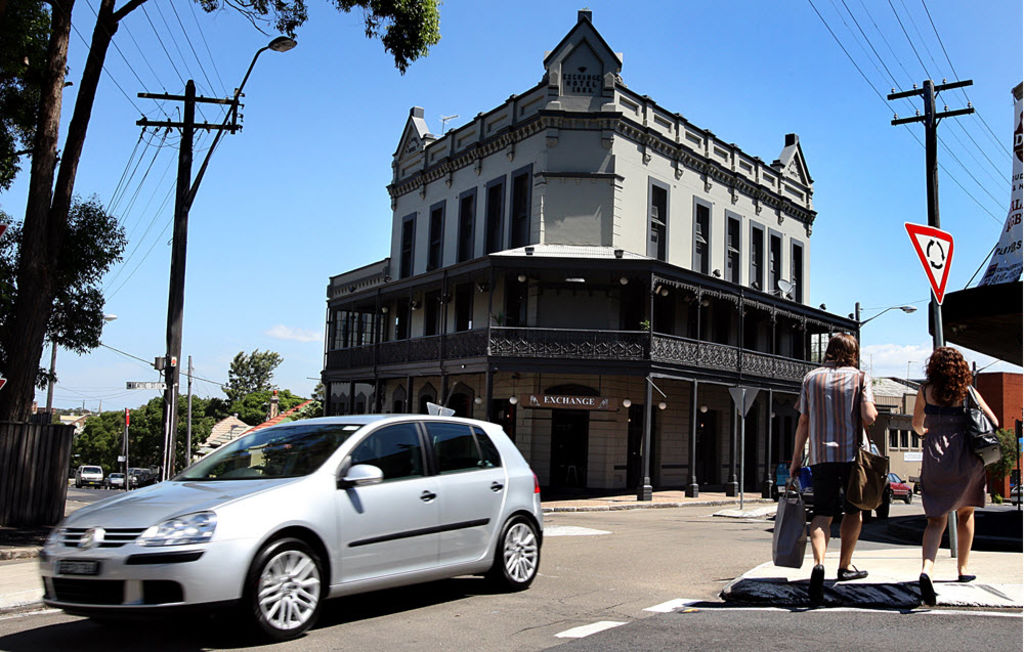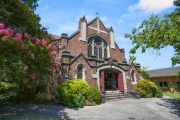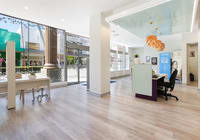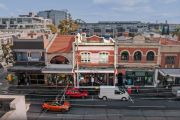
Balmain's Exchange Hotel set to be turned into boutique accommodation
A well-known watering hole in the Sydney suburb of Balmain is set to be transformed into boutique accommodation under plans submitted to council, marking the end of the heritage-listed site’s brief period operating as a combined pub and serviced office hub.
Architects Sydney Architecture Studio (SAS) have submitted a development application for a 35-room boutique hotel, incorporating a ground-floor coffee shop and the existing bar, in the old Exchange Hotel on the corner of Beattie and Mullens streets, on behalf of the property’s owner Jon Adgemis.
The DA, which is before Inner West Council, requests a change of use from “existing commercial premises to hotel accommodation, with retention of existing pub and cafe, internal and external alterations and additions to existing heritage-listed building, restoration and reconstruction of first floor and second floor street balcony, landscaping and associated works”.
The building had most recently been operating as a serviced office hub and pub, after being purchased in 2016 for about $5 million by a group of investors headed by Mr Adgemis. Mr Adgemis is associated with the purchase of other prominent inner-city buildings, including the former Paddington Bowling Club.
SAS partner Tom de Plater said, if approved, the development would return the building to something close to its original use – it used to have 40 hotel rooms – and open the site up again as a hospitality destination, with an emphasis on accommodation. He said the building had been suffering from a lack of foot traffic under its current mixed-use model.
He cited the Paramount House development in Surry Hills, which incorporated dining and drink options, a hotel and a cinema in a converted warehouse, as an example of how updating buildings could bring foot traffic to previously quiet pockets of the CBD.
“We’ve discussed Paramount House in Surry Hills quite a bit, and while we don’t intend to mirror its offering, its ability to capture the existing social footprint of the area and contribute positively to the needs of that community which include its residents, workforce and visitors is something we are striving to also do. It’s something that The Exchange Hotel in its most recent history has not been – [which is] busy! People haven’t wanted to visit or dine, or host meetings, and they certainly haven’t been able to stay.”
Asked about the pivot from office space to accommodation, Mr de Plater said the move was a result of community feedback and a response to other developments in the area.
“With healthy, sustainable, long-term business as our priority, we are confident in our plans to move away from office space and into the hospitality market. It’s a natural fit for the site and with a few other projects well underway, [including] Merivale’s 3 Weeds and Totti’s, it’s time to move this forward. We’re proposing a solution that will bring people to the area and encourage residents out of their homes, which has proved challenging for a lot of previous businesses,” he said.
At the same time, operating the venue solely as a pub was not a viable option.
“The demand for mid-sized pubs or taverns in this locality has declined over the past several decades,” Mr de Plater said.
“Pubs are becoming increasingly financially unsustainable and the land-use mix must be continuously evaluated and adjusted to maintain viability. This is something we are hoping to continue working with both council and community on.”
Mr de Plater emphasised that the change-of-use application would see the site revert to its original state as a pub-and-accommodation site.
“The existence of pubs is something the community cares deeply about. We are mindful that any mixed-use proposal would need to not only incorporate this, but actively drive patrons through its doors,” he said.
He said the development was intended to be sympathetic to the building’s original structure with plans primarily to restore the building, although the addition of polycarbonate-clad extension to one section of the building would give a contemporary feel.
“The proposal seeks to reinstate the original detailing, including the second-level balcony that was removed at some stage between 1960 and 1970,” Mr de Plater said.
The total development costs are estimated at $1.99 million, according to the DA.
Mr de Plater said the hotel would appeal to short-stay travellers seeking an alternative to staying in the city or Darling Harbour.
“Maybe our customer lives interstate and spends time in Sydney for work – he or she may value a sense of community that isn’t available in the CBD and seeks something more familiar, more boutique and more in line with their lifestyle.”
The proposal is expected to generate about 13,000 visitor nights based on an assumed 1.5 visitors per room and 70 per cent room occupancy, according to a social and economic impact assessment of the project conducted by Hill PDA Consulting.
Mr de Plater said the “optimistic” aim was to have the hotel in operation by December 2020.
“We are currently programming the design and construction timelines, and endeavour to keep the corner pub operational before, during and post-construction periods.”










